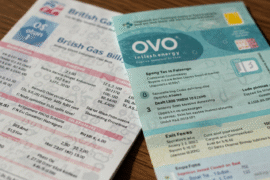This article may contain references to products or services from one or more of our advertisers or partners. We may receive compensation when you click on links to those products or services. Nonetheless, our opinions are our own.
The information presented in this article is accurate to the best of our knowledge at the time of publication. However, information is subject to change, and no guarantees are made about the continued accuracy or completeness of this content after its publication date.
- Key Highlights
- Introduction
- Understanding Equity Value and Enterprise Value
- Why Investors Need to Know Both
- Key Differences and Their Impact on Valuation
- Beginner’s Guide to Calculating Equity and Enterprise Value
- Conclusion
-
Frequently Asked Questions
- How Do Equity Value and Enterprise Value Affect Investment Decisions?
- Can You Calculate Enterprise Value Without Equity Value?
- What Are Common Mistakes When Comparing Equity and Enterprise Value?
- Why Is Cash Excluded from Enterprise Value?
- Are There Industry-Specific Considerations for Equity and Enterprise Value?
- Recommended Reads
Key Highlights
- Equity value represents the market worth of a company’s shares, while enterprise value reflects the total value of the business, including debt and cash.
- Investors use both measures to make informed investment decisions.
- Equity value helps assess potential shareholder returns, whereas enterprise value provides a comprehensive view of a company’s financial health.
- Factors such as market capitalization, debt levels, and cash reserves influence both values.
- Understanding these valuation measures enables investors to make better stock market choices.
Introduction
In finance, understanding equity value and enterprise value is essential. These two valuation metrics reveal different aspects of a company’s worth. Investors need to grasp their distinctions to make informed financial decisions.
Equity value represents the portion of a company available to shareholders, while enterprise value offers a broader perspective by incorporating the company’s debt and cash. Recognizing these differences helps investors evaluate financial health, risks, and growth potential.
Understanding Equity Value and Enterprise Value
Navigating financial markets requires familiarity with key valuation measures. Two commonly confused metrics are equity value and enterprise value—each serving a unique purpose.
Equity value reflects the market’s perception of a company’s future profits based on its share price. Enterprise value, on the other hand, provides a more complete picture by including both the company’s debts and cash reserves.
Defining Equity Value
Equity value represents the total market capitalization of a company’s outstanding shares. It functions as the price tag for the portion of the company owned by equity investors.
To calculate equity value:
- Multiply the current share price by the total number of outstanding shares.
For example, if a company has 10 million shares priced at $50 each, the equity value equals $500 million.
However, equity value does not account for a company’s debt obligations, which is why enterprise value provides a more comprehensive assessment.
Exploring Enterprise Value
Enterprise value encompasses the total value of a company, including both shareholders and debt holders. It factors in market capitalization, debt, and available cash or cash equivalents.
Think of enterprise value as the true cost of acquiring a company. For example, if a company has
- A market cap of $500 million
- Total debt of $100 million
- Cash reserves of $50 million
The enterprise value would be $550 million (market cap + debt – cash).
Enterprise value is particularly useful when assessing companies with complex financial structures, providing a clearer picture of their total valuation.
Voted "Best Overall Budgeting App" by Forbes and WSJ
Monarch Money helps you budget, track spending, set goals, and plan your financial future—all in one app.
Get 50% OFF your first year with code MONARCHVIP
Why Investors Need to Know Both
Understanding equity and enterprise value is crucial for investors, as each metric highlights different financial aspects of a company.
- Equity value is essential for investors focusing on share price appreciation.
- Enterprise value helps investors gauge the company’s overall financial stability and acquisition costs.
These valuation methods, combined with financial ratios like the price-to-earnings (P/E) ratio (which uses equity value) and the EV/EBITDA ratio (which factors in enterprise value), provide deeper insights into a company’s performance.
Key Differences and Their Impact on Valuation
One major difference between the two metrics is how they treat debt:
- Equity value excludes debt, focusing only on market capitalization.
- Enterprise value includes debt, offering a more comprehensive view of financial obligations.
Enterprise value also accounts for cash reserves, revealing a company’s ability to generate future cash flow and manage its financial commitments. Investors use this metric when evaluating potential acquisitions since it reflects the total cost of buying a business.
Beginner’s Guide to Calculating Equity and Enterprise Value
Accurately calculating these values is essential for investment decisions. The following steps will guide you through the process.
Step 1: Gathering Financial Statements
Before calculating equity or enterprise value, obtain the company’s most recent balance sheet, income statement, and cash flow statement. These documents are available on investor relations websites or financial data platforms.
- The balance sheet provides information on assets, liabilities, and equity.
- The income statement outlines revenue, expenses, and net income.
- The cash flow statement helps evaluate liquidity and cash reserves.
Step 2: Calculating Equity Value
- Find the company’s current share price (available on financial news websites or brokerage platforms).
- Determine the number of outstanding shares (listed in the latest earnings report or balance sheet).
- Multiply the share price by the total outstanding shares:
- Equity Value = Share Price × Outstanding Shares
For instance, if a company has 10 million shares trading at $50 per share, the equity value is $500 million.
Step 3: Determining Enterprise Value
- Start with market capitalization (same as equity value calculation).
- Locate total debt on the balance sheet (includes short- and long-term debt).
- Find cash and cash equivalents under assets.
- Use the formula:
Enterprise Value = Market Capitalization + Total Debt – Cash and Cash Equivalents
For example, if a company has
- Market Cap: $500 million
- Total Debt: $100 million
- Cash Reserves: $50 million
Then, Enterprise Value = $500M + $100M – $50M = $550M.
Conclusion
Understanding equity value and enterprise value is essential for investors seeking to evaluate a company’s financial health and investment potential. While equity value highlights shareholder ownership, enterprise value provides a complete picture of a company’s total worth.
By mastering these concepts, investors can make better decisions when analyzing stocks, acquiring companies, or assessing financial stability. For personalized investment guidance, consider consulting financial experts.
Frequently Asked Questions
How Do Equity Value and Enterprise Value Affect Investment Decisions?
Both metrics offer unique perspectives. Equity value helps investors assess stock performance, while enterprise value provides insight into the company’s total financial standing, including debt.
Can You Calculate Enterprise Value Without Equity Value?
Since enterprise value incorporates market capitalization (a component of equity value), calculating it without equity value is not possible. However, investors can estimate enterprise value by discounting future free cash flows.
What Are Common Mistakes When Comparing Equity and Enterprise Value?
- Using inconsistent valuation multiples (e.g., comparing P/E ratios with enterprise value metrics).
- Ignoring the impact of debt and cash when evaluating companies.
- Misinterpreting enterprise value as an acquisition price without considering control premiums or transaction costs.
Why Is Cash Excluded from Enterprise Value?
Cash and cash equivalents are excluded because they do not contribute to the core business operations. Enterprise value focuses on the capital required to run the business.
Are There Industry-Specific Considerations for Equity and Enterprise Value?
Yes. Capital-intensive industries (e.g., manufacturing, telecom) rely more on enterprise value due to significant debt usage. Conversely, equity value is more relevant for high-growth sectors with low debt, such as tech startups.

Reviewed and edited by Albert Fang.
See a typo or want to suggest an edit/revision to the content? Use the contact us form to provide feedback.
At FangWallet, we value editorial integrity and open collaboration in curating quality content for readers to enjoy. Much appreciated for the assist.
Did you like our article and find it insightful? We encourage sharing the article link with family and friends to benefit as well - better yet, sharing on social media. Thank you for the support! 🍉
Article Title: Equity Value vs. Enterprise Value: How Investors Use Them
https://fangwallet.com/2025/02/10/equity-value-vs-enterprise-value-how-investors-use-them/The FangWallet Promise
FangWallet is an editorially independent resource - founded on breaking down challenging financial concepts for anyone to understand since 2014. While we adhere to editorial integrity, note that this post may contain references to products from our partners.
The FangWallet promise is always to have your best interest in mind and be transparent and honest about the financial picture.
Become an Insider

Subscribe to get a free daily budget planner printable to help get your money on track!
Make passive money the right way. No spam.
Editorial Disclaimer: The editorial content on this page is not provided by any of the companies mentioned. The opinions expressed here are the author's alone.
The content of this website is for informational purposes only and does not represent investment advice, or an offer or solicitation to buy or sell any security, investment, or product. Investors are encouraged to do their own due diligence, and, if necessary, consult professional advising before making any investment decisions. Investing involves a high degree of risk, and financial losses may occur including the potential loss of principal.
Source Citation References:
+ Inspo












































